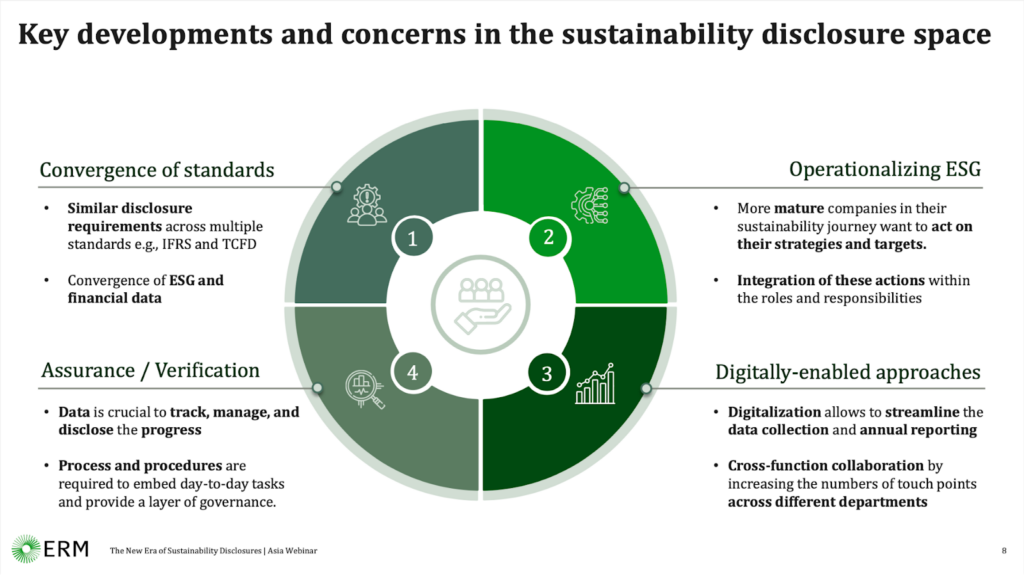The landscape of sustainability within Asian companies is undergoing a transformative phase, shaped by dynamic shifts in global standards, operational strategies, and technological advancements.
Recent insights derived from an ERM seminar “The New Era of Sustainability Disclosures” offer an illuminating guide for these enterprises, pointing towards a transformative path to embed sustainability as a cornerstone of their operation. The seminar dissected multifaceted strategies and actionable insights essential for Asian companies in redefining their approaches to sustainability.

The discourse emphasized the evolution of sustainability practices, particularly the alignment with ESG frameworks. This alignment not only simplifies the process of gathering and reporting sustainability information but also acts as a catalyst for Asian companies to embrace new sustainability themes, notably focusing on nature preservation and sustainable supply chains. Embracing these themes not only fulfills societal responsibilities but also augments corporate value.
The seminar emphasized the critical involvement of CEOs, CFOs, and board members in embedding ESG factors within core decision-making processes. This active engagement not only signifies a profound shift in business paradigms but also serves as a catalyst for broader corporate action. Furthermore, garnering support from senior management not only reinforces the gravity of sustainability goals but also instigates purposeful initiatives across diverse operational domains.
Executing sustainability initiatives demands scrupulous planning, adequate allocation of resources, and a significant investment of time. The seminar strongly underscored the imperative of devising a comprehensive ESG implementation strategy. This strategic blueprint delineates precise initiatives aimed at accomplishing sustainability goals. By furnishing clarity and direction, this methodical plan empowers respective departments within organizations, fostering a harmonized and targeted endeavor towards fulfilling sustainability objectives.
An essential aspect highlighted was the leveraging of existing relationships to procure relevant data, followed by its digitalization. Understanding the current data landscape and identifying ownership is fundamental. It is subsequently, digitalizing the data collection process streamlines monitoring and evaluation, fostering informed decision-making and enhancing the overall efficiency of sustainability efforts.

The insights derived from the ERM seminar offer a comprehensive blueprint for Asian companies seeking to entrench sustainability within their organizational framework. The significance placed on data integrity, assurance, and verification underscores the indispensability of robust governance practices, fostering transparency and engendering trust among stakeholders. Notably, the integration of digitally-enabled collaborative methodologies not only streamlines operations but also enhances cross-functional cooperation, fostering increased efficiency and a culture of innovation.
Check out our Knowledge Hub for more insightful articles like this one!